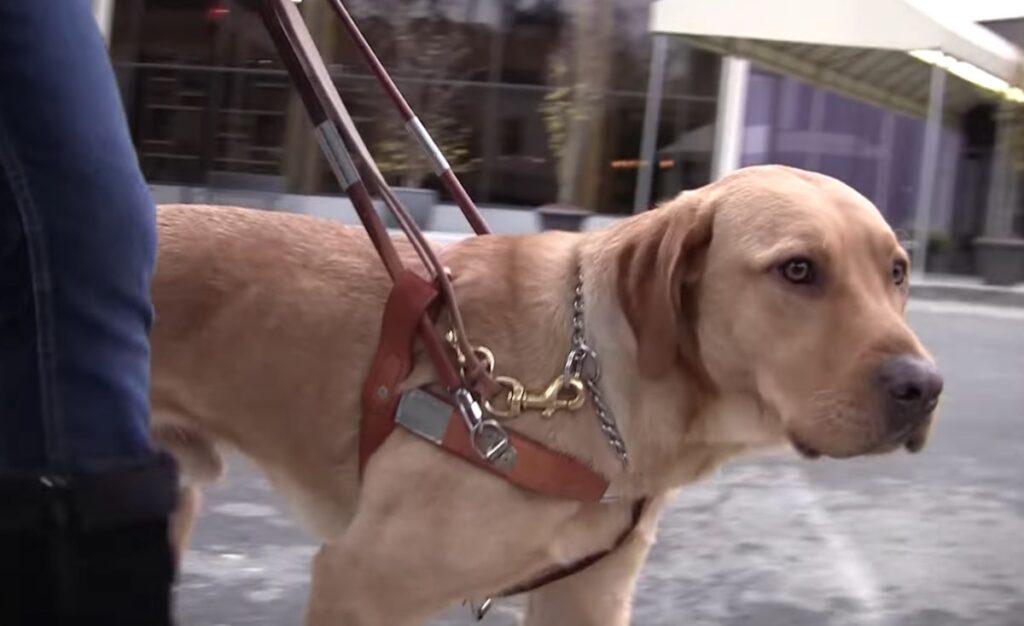 A while back, Michael Hingson interviewed me for his Unstoppable Mindset podcast. Michael is the author of Thunder Dog, a book that earned my first perfect 10 on this blog. It was a great conversation and I’ll post a link once it goes live. He records them several months before they air. He’s a busy guy, and it’s easy to see why. He’s witty, smart, and very good at putting his interviewee at ease. I asked to interview him, and he agreed. We decided to make this a double dip: we would do it on audio for his podcast, and I would work with the transcript to make this version.
A while back, Michael Hingson interviewed me for his Unstoppable Mindset podcast. Michael is the author of Thunder Dog, a book that earned my first perfect 10 on this blog. It was a great conversation and I’ll post a link once it goes live. He records them several months before they air. He’s a busy guy, and it’s easy to see why. He’s witty, smart, and very good at putting his interviewee at ease. I asked to interview him, and he agreed. We decided to make this a double dip: we would do it on audio for his podcast, and I would work with the transcript to make this version.
Please enjoy this first part of that conversation.
Me: Michael, so good to talk to you again. I enjoyed our previous conversation, and I’m delighted that you agreed to be interviewed for my blog.
Michael: Well, I’m glad to do it. And thank you for asking me.
Me: In your book, you talk about developing some skill with echolocation. In my upcoming book, I have a character who gets stuck in a cave. His phone is dead, and he’s light-dependent, like me. I’ve tried echolocation in quiet rooms and have had no luck. I’d die quickly if my life depended on it. Can you talk me through how it works for you what kind of resolution you can get out of it?
Michael: Well, the reality is, I don’t think that you would die if you suddenly had to use it and just slow down and work through it. We all use it to one degree or another. When you’re in some room and you hear a noise. Sometimes it echoes and you hear it from different directions. You can learn easily, how to use the sounds around you to help you in terms of your orientation and in terms of the kinds of things that you do. So, for me growing up I learned to listen to my surroundings. I could hear maybe that I’m coming to a table. I could hear that there’s a wall in front of me. If you really try it—and you have to focus on it a bit—you can do the same thing. Put a blindfold on, and let’s say there’s a hall in your house and you walk past several doors. If you have the doors open and you just make some noises like a click of your tongue, or just even snap your fingers. If you have some sort of continuous sound, you can hear when you pass the openings to those doors. It’s not magic, it is something that, to one degree or another, we all do. But what those of us who are blind happen to do is that we learn to use other senses that are around us. They’re not increased over yours. Unless we practice with them. To people like SEAL team members, they learn to see very well but they learn to use all their senses. They learn to be aware of their surroundings. And it’s not just the visual, the vision sense that they use. It is all their senses, and they learn to hone those senses and that’s no different than any of us can do.
Me: Okay, well, I may have to give that a shot. I’ve got this character wandering around in a cave and right now he’s doing pretty much everything by touch and reaching out tapping the ground ahead of him with his foot to make sure that he doesn’t fall off an edge and into a pit.
Michael: Learning to hear things that are in front of you, that are drop offs and so on is harder. And that’s what a white cane is for or in your case the person in the cave up maybe he should break off a stalactite and have something long enough that he can tap it in front of him. The way a white cane works is when I stepped forward with my left foot. I kind of arc and tap it to the right. Not far beyond the right side of my body. And then when I step forward in my right foot, I tap to the left. So, I don’t just scrape the cane along the wall or the floor. But tapping it gives me information. I use a white cane that’s pretty flexible, so it gives me a lot more information. For your person, if there’s a stick that he can grab that’s maybe three or four or five feet long or a stalactite he could break off to tap in front of him as he walks. That’s the way to do that.
Me: One of the things from Thunder Dog that made me laugh was that when you got your degree in Physics from UC Irvine, your dog, Squire, also got a degree. Can you tell us a little bit about that?
Michael: Well, he was pretty loved around the campus and the only guide dog on campus. So, when the graduation ceremonies were being planned, I was on the committee for that. But they asked me not to attend one of the meetings and someone leaked what they were doing – they were going to create a degree for Squire. On the day of graduation, when we were all sitting there, the Chancellor made a special point to call Squire up to the stage. And he gave squire a framed degree in Lethargic Guidance. Squire by that time was 10 and he was slowing down. So, Chancellor Dan gave him a degree and lethargic guidance was clearly the way to honor Squire.
Me: That’s nice. I did not appreciate until reading your book just how hard a guide dog has to work when they’re in harness. That is a that is a full-time full-on task.
Michael: I think more important to understand is that they take it extremely seriously. And these dogs are very stoic. They’ll work till they drop, literally. It would take a lot to cause them not to work. And I can tell you a story about that. Yes, they work hard and they’re very, very focused in what they do. Dogs in general want to please and that’s the problem, I think, with most people. When they have pets, they don’t really take them very seriously. They don’t understand how intelligent they are. People just think they’re real cute and they don’t appreciate the intelligence and the commitment the dog makes to them. The dog wants someone to be the leader of the pack if you will. And when you do that, it works. You also need to do things like provide good rules, you need to be consistent.
Interested in learning more about guide dogs? Stay tuned for the next post with Michael Hingson and visit Guide Dogs for the Blind.


